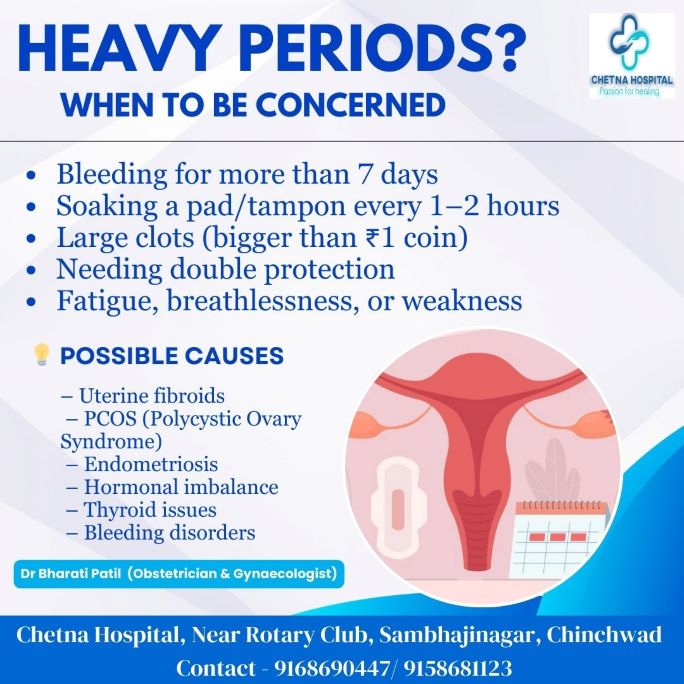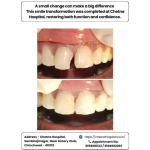Menstruation is a natural and essential part of a woman’s reproductive health. However, not all periods are the same. While some women experience light and manageable bleeding, others may go through heavy periods that affect their daily lives. But how do you know when heavy bleeding is abnormal and requires medical attention?
What Is a Heavy Period?
A heavy period, also known as menorrhagia, is menstrual bleeding that is abnormally heavy or prolonged. While the flow can vary from person to person, the following signs may indicate that your period is heavier than normal:
- Bleeding for more than 7 days
- Soaking through one or more pads or tampons every 1–2 hours
- Needing to use double protection (pad + tampon)
- Passing large blood clots (bigger than a ₹1 coin)
- Feeling tired, weak, or breathless during periods
- Experiencing frequent cramps or back pain
If any of these symptoms sound familiar, it’s important not to dismiss them as “normal.” Consistently heavy periods can lead to anaemia (a lack of healthy red blood cells), which causes fatigue, dizziness, and shortness of breath.
What Causes Heavy Periods?
Several medical conditions can be responsible for heavy menstrual bleeding:
1. Uterine Fibroids
Noncancerous growths in the uterus that can cause prolonged or heavy bleeding.
2. Polycystic Ovary Syndrome (PCOS)
A hormonal disorder that affects ovulation and can lead to irregular or heavy periods.
3. Endometriosis
A condition in which tissue similar to the lining of the uterus grows outside it, often causing painful and heavy periods.
4. Hormonal Imbalance
An imbalance in estrogen and progesterone levels can lead to a thickened uterine lining, resulting in heavier bleeding.
5. Thyroid Disorders
Both hypothyroidism and hyperthyroidism can disrupt your menstrual cycle.
6. Bleeding Disorders
Conditions like von Willebrand disease, a blood clotting disorder, can also lead to excessive bleeding.
When Should You See a Doctor?
If heavy periods are interfering with your day-to-day life, affecting your energy levels, or worsening over time, it’s important to consult a gynaecologist. Early diagnosis can help identify underlying health issues and ensure timely treatment.
Your doctor may recommend:
- Blood tests to check for anaemia or hormonal imbalance
- Ultrasound or pelvic exams to identify fibroids or other abnormalities
- Medication, hormonal therapy, or surgical options depending on the cause
Take Charge of Your Health
Menstrual health is an important part of overall well-being. While every woman’s period is different, extreme or sudden changes in your menstrual flow should never be ignored. Regular gynaecological check-ups can help detect issues early and keep you informed about your reproductive health.
At Chetna Hospital, our expert gynaecologists offer compassionate care and advanced treatment options for all menstrual and reproductive concerns. If you’re experiencing heavy periods, don’t wait—schedule your consultation today.
For Consultation Contact us on 9168690447 / 9158681123
Website –
Address – Chetna Hospital, Sambhajinagar, MIDC, G Block, Near Rotary Club, Chinchwad 411019
.
.
.
#hospital#pune#pcmc#chinchwad#health#healthcare#gynaecologist#femalegynaecologist#gynaecologistappointment#gynac#gynaecologistdoctor#gynaecologisthospital#goodgynaecologist#gynaecologistspecialist.













